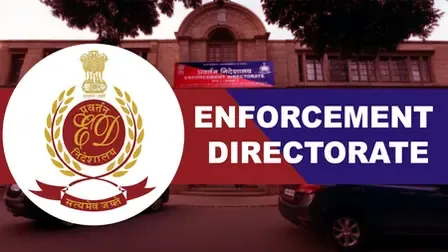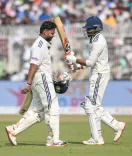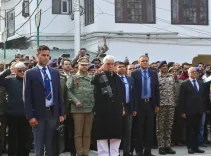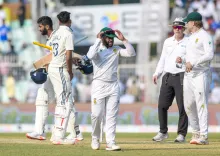Are Young Congress MPs Frustrated Over Disruptive Tactics in Parliament?
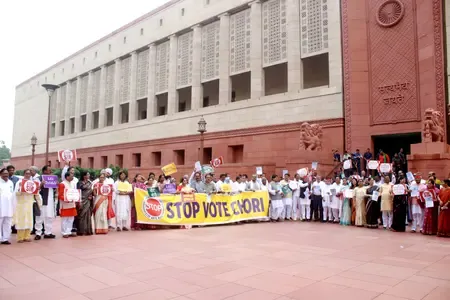
Synopsis
Key Takeaways
- Internal divisions in Congress are deepening.
- Young MPs are frustrated with disruptive tactics.
- Rahul Gandhi's leadership style is under scrutiny.
- Potential consequences include a fractured party unity.
- PM Modi is capitalizing on the discord to strengthen his position.
New Delhi, Nov 16 (NationPress) Internal divisions within the Congress party are reportedly deepening, as a rising tide of discontent from young lawmakers threatens to lead to a significant rift.
Central to this discord is the ongoing approach of Leader of Opposition Rahul Gandhi, whose strategy of parliamentary disruptions is criticized for suppressing new voices and undermining the careers of the party's emerging talent.
The brewing tensions were highlighted during a candid podcast interview in May 2025 with Rajya Sabha MP John Brittas, a young leader from Kerala. He revealed shocking details regarding directives from the party. Brittas disclosed that Gandhi explicitly told MPs to "disrupt Parliament" and actively discouraged them from participating in meaningful debates.
"Rahul Gandhi instructed us to disrupt Parliament and prevented us from speaking," Brittas noted, resonating with the frustrations shared by the youth wing.
Brittas, known for his articulate media presence, did not shy away from sharing his experiences with Gandhi. When asked about the leadership pair—Rahul and his sister Priyanka—Brittas tactfully remarked, "Both are intelligent in their own ways. To be honest, I haven’t formed a judgment about them."
Despite his efforts to connect, he acknowledged, "I meet him, but I don’t know... he is not that warm to me." The reason? Brittas’ gentle critique during a party meeting, where he advocated for innovative protest strategies instead of routine disruptions.
"I expressed that daily disruptions are not beneficial. We need to think of alternative methods... innovative protests," he recounted.
Gandhi, Brittas suggested, took offense, leading to a noticeable coldness in their exchanges. The consequences have been significant; Question Hour and Zero Hour have been eliminated, resulting in discussions and debates being derailed—outcomes that Brittas believes inadvertently favor the ruling BJP.
"They provide advantages to them (the ruling party)," he lamented, pointing out how such disorder allows the government to operate without scrutiny.
When asked about internal support, Brittas stated, "Many individuals are backing me... somewhat." Regarding Gandhi's response? "I’m unsure. It remains a secret from our meeting."
Prime Minister Narendra Modi has seized on this internal discord, highlighting it in recent speeches.
"When we engage with young Congress members or INDIA alliance members in Parliament, they express, 'Sir, what can we do? Our careers are at stake. We hardly get a chance to speak as these individuals keep insisting, 'Lock Parliament,' every time,'" PM Modi quoted, adding that these MPs find it challenging to explain their silence to their constituencies.
Recently, PM Modi further predicted a possible split within the party during his victory speech following the Bihar election results.
With the Winter Session approaching, the youth faction—many of whom are in their first parliamentary terms—fears becoming obsolete amidst Gandhi's vociferous tactics. Sources within Congress suggest informal meetings among discontented MPs, evaluating options ranging from quiet rebellion to outright defection.
With the party's electoral prospects already compromised—particularly after the recent Bihar assembly elections—this internal 'rebellion' could fracture its delicate unity, granting the BJP an indisputable advantage.
For a revitalized opposition, the message is clear: Disruptions may energize the base, but they pose the risk of alienating the very future the party requires to endure.

